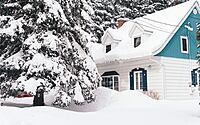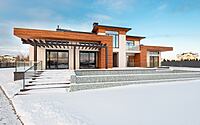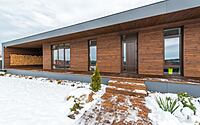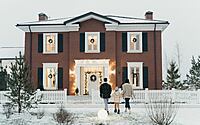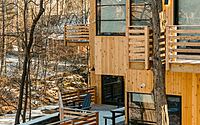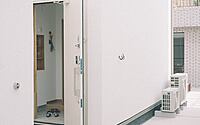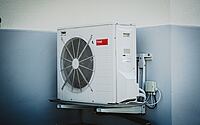How Winter Weather Impacts Your HVAC System
For many people, winter is their favorite season of the year. The subfreezing temperatures encourage them to cozy up at home, drinking a warm drink and admiring the snowfall from the window.
However, despite the beautiful sights winter offers, the cold weather can be quite fierce and damage your home if you aren’t ready properly. That’s why it is imperative that you do a few winter home preparations to protect your property from winter storms and stay warm indoors. One thing you need to pay the most attention to is your HVAC system.
In general, you rely on your heating system to keep you warm during the colder months of the year. If the system fails to work, you are looking at a really cold home and high heating bills. So, knowing the consequences the winter weather can cause your HVAC system will certainly help you avoid potential issues.
In this post, we outline how snowfall and ice can impact your HVAC unit and what you can do to protect it.
Ventilation blockage
One way winter can affect the efficiency of your HVAC system is by blocking the airflow. The thing is when heavy snow and ice accumulate on or in your unit, they make it much harder for air to flow as it will require more pressure to push air through the house. The more pressure it needs, the more energy it will waste, which will certainly lead to a poorly working HVAC unit and high energy bills.
Because this issue is hard to spot, you should call up professionals to do a quick inspection of your unit to make sure it works correctly. For example, if you live in Edmonton, CA, look for the best Edmonton heating services nearby to find local contractors who will check, maintain and repair any ventilation issues with your HVAC system.
Blocking the furnace exhaust
If the furnace is your primary source of heating, then it is important that you keep it running as efficiently as possible to protect it from any potential breakdowns caused by snow and ice. In fact, too much snow can be very bad for your furnace exhaust as it can prevent it from working properly or even worse, allow hazardous chemicals to enter your home.
Depending on your furnace type, there may be a safety switch that will shut down your unit in case it becomes blocked with snow.
Also, make sure you clear the area around your external intake pipe to avoid any snow or ice obstructions that could keep your furnace from operating properly.
Snow and ice build-up
If you live in a region where there is lots of snowfall and ice, then you should definitely be prepared to tackle any snow build-up. When snow or ice starts to accumulate on your HVAC system, the unit could eventually freeze or shut down, causing serious plumbing issues and making your living space really cold.
To prevent this from happening, you should clear any hanging icicles off of any part of your house that hangs over your HVAC system to avoid costly damages to the unit. Also, make sure you keep the space around the unit clear, especially after a large snowstorm, and keep the top and sides of the outdoor component uncovered.
Damage to your outdoor unit
Although HVAC units are designed to withstand all kinds of harsh elements all year long, there is always the potential for damage that can happen due to snow and ice. In fact, heavy snow and ice can easily enter the outside HVAC system and bend the fans or coils, resulting in great damage to the entire unit.
Besides this, the snow inside the system can further limit airflow, causing the unit to work harder to keep up which can also lead to faster wear and tear, overheating, and burning out. That’s why it is important that your HVAC system is installed several inches off the ground to avoid snow and other debris from infiltrating the unit.
Final thoughts
Your HVAC system is probably the most important appliance you will be using in winter. That’s why it is crucial that you maintain it properly and do everything you can to protect it from heavy snow and ice that could cause serious damage to it.
The first step you should take is to understand how winter can affect your unit’s efficiency and what you can do to keep it working correctly during the cold season. Use our post as a reference and read about the impact winter weather can have on your HVAC unit.
- by Matt Watts



